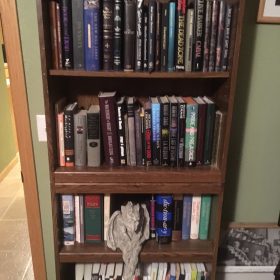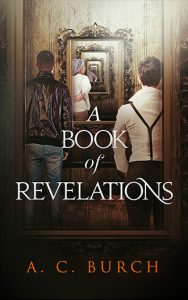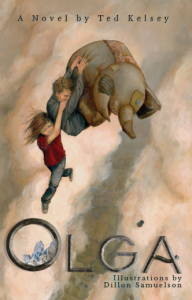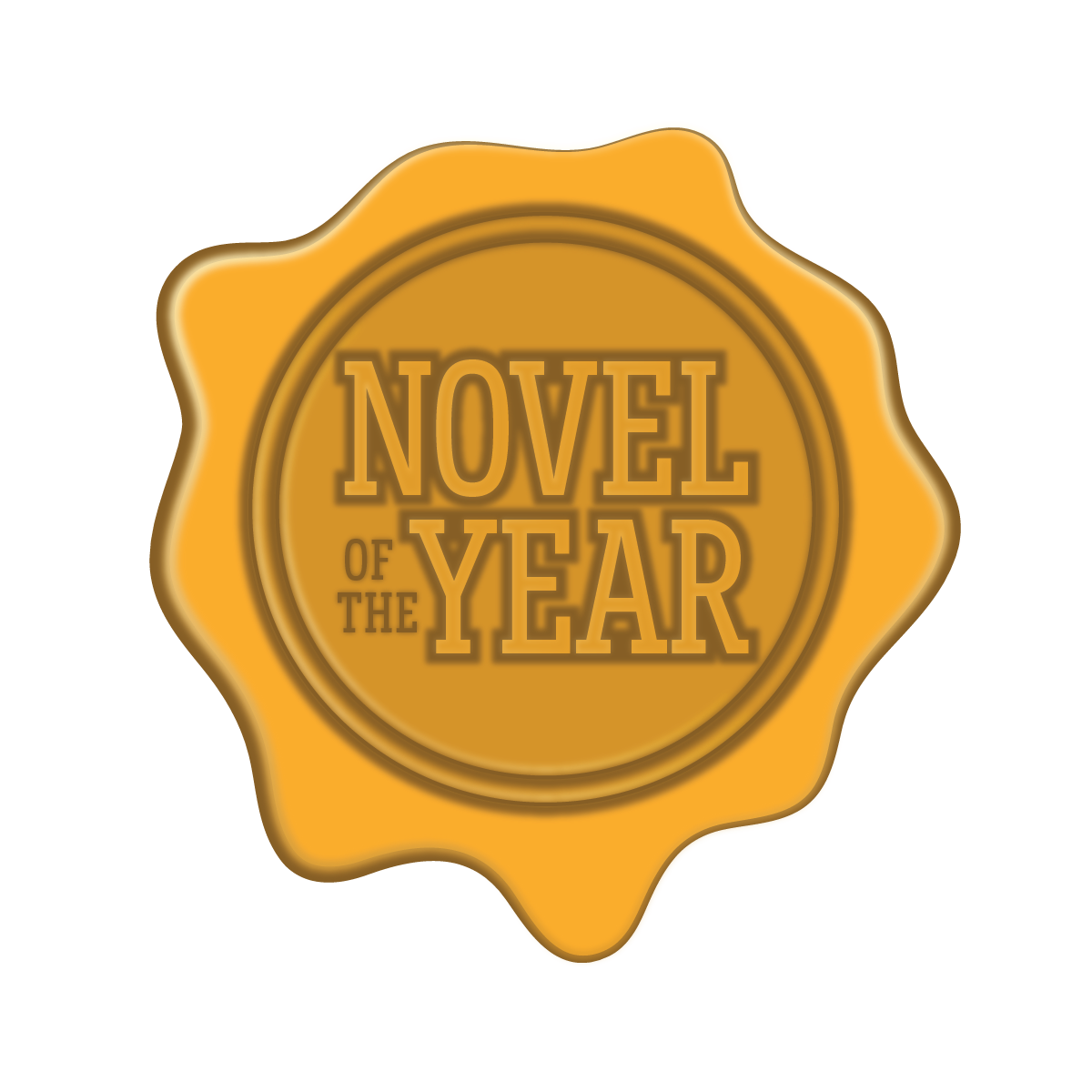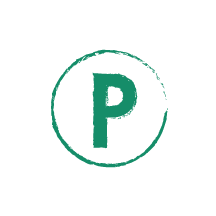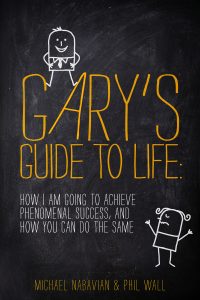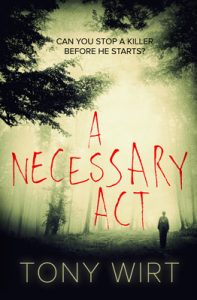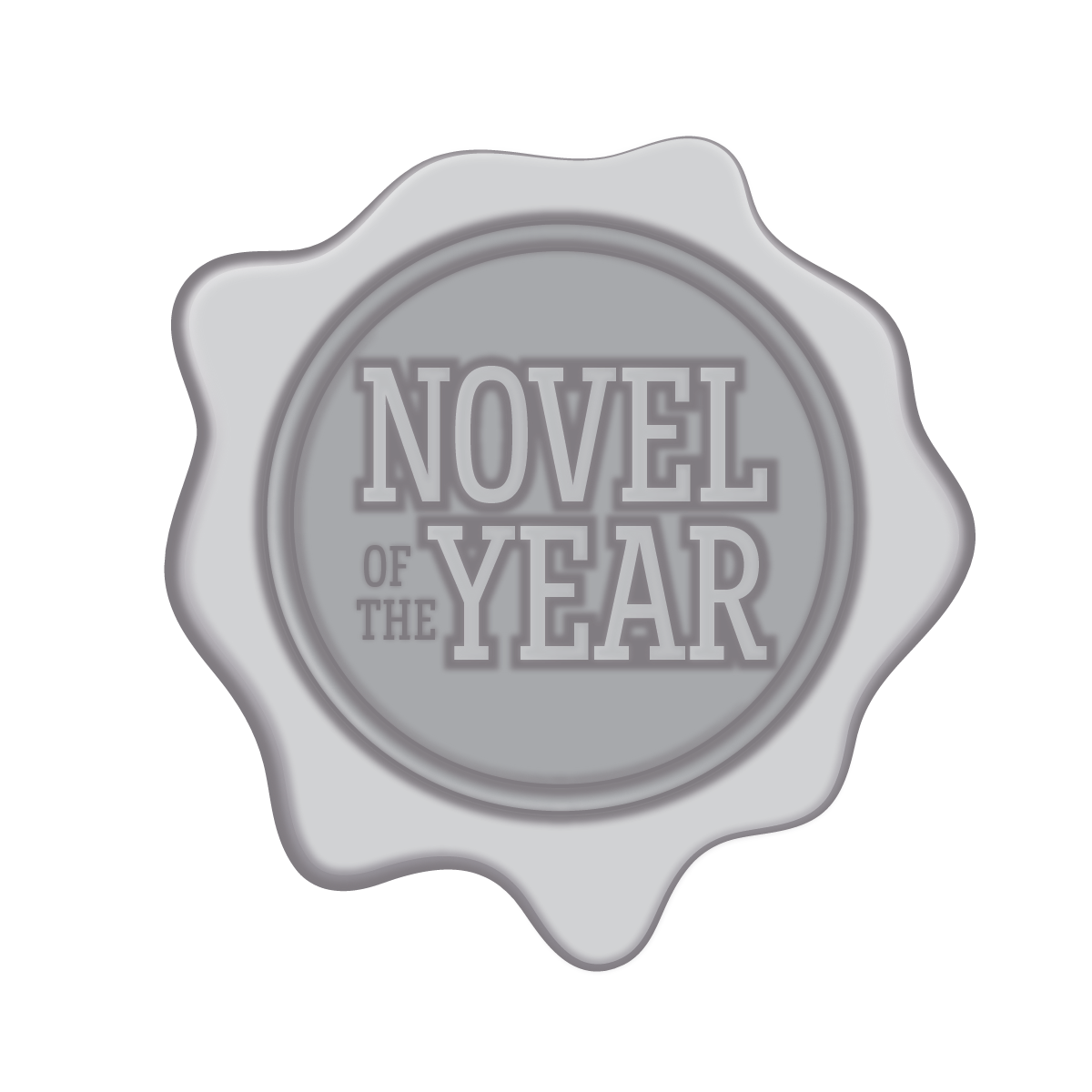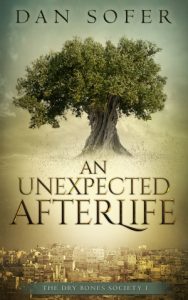The Rundown
The Recommendation
The Rating
The Links
The Reviewer
Bill Kieffer
Visit Bill Kieffer‘s website.Let me introduce you to Brian Kaufman of Dark Silo Press, a Colorado based micro-publisher of supernatural horror. If there was ever a good place for a zombie stronghold, it would have to be somewhere in Colorado. Since 2013, Mr. Kaufman and Dark Silo Press have shared nightmares with the world via insidious ebooks with covers of primitive, outsider artwork.
They've earned the honor (or the onus) of being the first publisher to be interviewed for Shelfies.
Brian Kaufman on his bookshelf:
I have a lot of books. For much of our marriage, my wife and I spent more money on books than on food. This bookcase, however, is my "Keeper" shelf. I am emotionally attached to every book there, and there's a story behind most of them. With a good eye, you can scan to the right of "Pride and Prejudice" and see a few "Golden Books," holdovers from when I was a kid. "Scuffy the Tugboat" is a favorite. One shelf down and to the left is my Norton Shakespeare Anthology, notable because each page contains a single column - easy to read. Also pictured, the first-edition three volume set of Clive Barker's "Books of Blood." A fine Beowulf translation, next to Gardner's "Grendel" and Crichton's "Eaters of the Dead." Vardis Fisher's "Mountain Man" and Charles Portis's "True Grit." Emerson's essays. "The Song of Roland" and "The Alamo" (epic poems). Raymond Russell's self-published masterpiece, "Haunted Castles." Jules Verne and H.G. Wells. Mary Shelly's "Frankenstein." Matheson's "Bid Time Return." A first-edition "The Exorcist." Yusef Komunyakaa and Bukowski. The collected stories of H.P Lovecraft and Louis L'Amour. "Atlas Shrugged" and "The Hunchback of Notre Dame." Jane Austen and Robert Crais. Boxing stories from F.X. Toole and Robert E. Howard. Bill James's "Historical Baseball Abstract" and Shelby Foote's history of the Civil War.
I have eclectic tastes. And I could not part with a single volume here.
On Dark Silo Press
Please describe Dark Silo Press briefly and what genre(s) do you serve?
Dark Silo Press is a nano-press serving the horror genre—in particular, supernatural horror.
How did you come to create Dark Silo? What titles and writers did you start with?
I’d published two novels with a small press. The first novel was a wonderful experience. The second left me disappointed. The book designer didn’t do a good job, and there was a severe format error near the end of the book. I earned almost nothing on the two books (to be expected). When I finished my third novel, Dead Beyond the Fence, I decided to try my hand at self-publishing. I did not go an easy route—I started the company from scratch, hiring designers, editors and artists to do a professional job. The book did well, and I was hooked.
How has the company changed over time? Was it because of lessons learned? Did changes within the publishing world force you to adapt as well?
After the success of the first book, I decided to begin publishing other writers. T.S. Roberts was an editing client. I loved his book, so I offered to publish his novella Crystal Rose as an eBook. Later, I approached Eric S. Brown ("The Taint") with an idea for a project, and he jumped on it. By the time those two books came out (2014), eBooks were popular. My original idea was to publish novellas in eBook form, and do print versions of novels, but with our latest—Erik Hofstatter’s Rare Breeds I did both eBook and print.
In just the last six years, the market has changed substantially. Reviews are much harder to come by—probably because of the large number of books being published. Because I publish horror, which has lost its place in brick-and-mortar retail, I focus on the Internet. Even that has changed. Three years ago, Facebook was a good bet for an ad. Not so, these days.
Our publishing process hasn’t changed that much. I still use professional editors, book designers and graphic designers. The finished product is important to me. But I’m having to fight harder for the same tiny sliver of the market.
Do you have a staff? Can you introduce us?
I work with a small number of professionals. Jamie Schenkel is one of two copy editors (I’m the other one). Jessica Babb-Raymundo does my cover layout and designs. Both women are sweet, family-oriented adults who think my stories are disturbing.
Both interior and cover art is done by Jack Larson, a talented artist who lives in New Mexico. Sticking with one artist has been an important branding strategy, and Jack is perfect for our genre.
On Brian Kaufman Himself
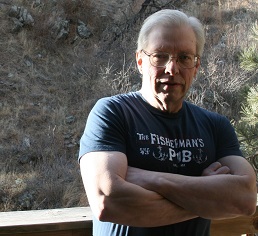
Tell us a bit about yourself before you put on your publisher hat. Where were you raised? How did you relate to others from your age group?
It was always my intention to write, but I am incredibly lazy, and the first novel waited until I was in my forties. I researched a historical novel for three years, and spent two years writing it. Then I spent five years marketing (and tweaking) the manuscript. I was convinced I needed more education to fully understand the craft of writing, so I quit my job and went to Colorado State University, earning a degree in Creative Writing. In the meantime, I racked up more than a hundred rejections from publishers and agents before giving up and putting the book away. Less than a month later, a publisher (Last Knight Publishing) called with an offer.
How did I relate to others from my age group? I didn’t. In school, all my friends were two to three decades younger than I was. I worked in restaurants to pay my tuition, and everyone was younger. In my spare time, I played heavy metal guitar, lifted weights and drank a lot of beer. People my age were (and are) appalled.
Imagine that your ultimate destiny is a window-less, suspicious-looking van for a moment. Instead of "free candy," what would be written on the side of it to lure you inside?
"Banned Books/Craft Beers"
What was young you like? Would young you recognize current you? What would you tell young you?
The young me was a lazy, entitled little shit. If I met me, I’d say, “Get the hell out of my way, or I’ll punch your face.” I wouldn’t offer advice. He never listened.
What did you read before you even thought of publishing? How did becoming a publisher change your reading habits?
I’m astounded by how few of my writer friends read books. I have been a book sponge since I was five, devouring anything from science fiction to romance to the classics. I’ve added some non-fiction since becoming a publisher. What recently accelerated my reading is my Kindle, which puts affordable books in my hand at all times. If I’m in a grocery line, I’m reading. Red traffic lights are a temptation.
If you meet someone for the first time and they introduce themselves as a writer, do you... a) say "Hey, funny coincidence..." b) talk about your "day job" exclusively... or c) point to a grouse in the trees and run away when their back is turned?
I’m uncomfortable talking about myself. Luckily, most people want to talk about themselves, so I just ask questions and listen. You can learn a lot with your mouth shut.
On Readers/Fans
What sensations or experiences do you hope to evoke in your readers? What's your favourite feedback so far from one of your customers?
Horror books should evoke horror. That’s a tough trick in this world, because reality is damned frightening. Vampires won’t scare readers anymore. In my own fiction, I come at the sensation obliquely, hoping for a mix of eerie confusion and melancholy. The Wretched Walls is probably the best example. So much of that novella takes place on the periphery. It’s disturbing as hell.
As far as feedback, one review called me “the King of the Crowbar,” referring to an implement of mayhem for a character in Dead Beyond the Fence. But my favorite piece of feedback came from my son, who called after reading that same novel. Without a preamble, he demanded, “What’s wrong with you?” That was priceless.
If money was no object, which book(s) or author(s) would your readers demand publish?
If money were no object, I’d publish Greg Gifune and Ronald Malfi. But I’ve done pretty well without the money. Publishing Eric S. Brown was a dream, and the man took a huge cut in pay to support a small press project.
What conventions or conferences do you attend where you meet fans? Do you tend to appear on panels or do you prefer to revert as a fan yourself?
This year involves my first effort with conventions. There are a number of horror/fantasy/comic cons in Colorado, and I’m going in face-first. If someone actually makes the mistake of letting me speak on a panel, I’m going to do it.
On the Writers Community
How do you attract writers? Or do they tend to find you? From submission to publication to marketing, how closely to you tend to work with your creators?
I work very closely with my writers, providing line by line suggestions. I haven’t had any bad experiences to report. The people we publish are pros.
Tell me about some of your favourite authors that you have worked with.
Eric Hofstatter (author of Rare Breeds) was a dream. We went back and forth three or four times on his novella. The process took six months—worth every second. His book is getting incredible reviews, and that’s a reflection on his willingness to push for the perfect manuscript.
In addition to being a publisher, do you offer any literary services for creators outside of your publishing company?
I do editing services for all genres. Several of the books I’ve worked on have been published. It’s always nice to see my name on the acknowledgments page.
Even ebooks have to have covers. How much say do your creators have in selecting a cover artist? How much say in the layout and design?
Jack Larson is my only cover artist. As I mentioned, this is a branding decision. I was looking for a cover for my first book, and did a Google search. I think one of the keywords I used was “bizarre.” Anyway, I combed through a ton of work before finding exactly what I wanted. I searched him down and emailed him, asking if he’d let me use his art.
Our present working relationship is pretty unusual. For Rare Breeds, which has interior illustrations, I gave him a brief description of the book’s themes and revealed the surprise ending. Then I turned him loose. I had no idea whatsoever what he’d come up with, since the bulk of the horror is psychological, hinging on that surprise ending. I couldn’t imagine how he’d illustrate any of it. Three weeks later, I had canvases. They absolutely blew me away.
On Local Real World Stuff
Do you, as a creator, reach out to local community groups or art guilds? Is there an active art community there? If so, do you interact with it in some way?
I’m involved in the local poetry slams, from judging to performing. I’m also connected to the local bookstores, and support any and all writer events. Luckily, the Northern Colorado area has a vibrant arts scene, so there’s always something going on.
Do you, as a publisher, reach out to locals thru books stores, craft fairs, or the local chamber of commerce? Do you maybe sell you books at farm markets and the like?
I am a shameless purveyor, selling books through local stores, flea markets, winter craft markets and the local farmers market. Next week, I’m selling books at a Masonic Temple gift bazaar. I actually do pretty well at these things, since I like to meet people and talk books.
Do you work with any local writers or know any? Does the area find its way into their work?
I belong to two local writer’s groups, and through local events, meet and keep in contact with dozens of other writers and aspiring writers. I spent a lot of time corresponding with them, and reading their projects, offering advice.
Q: Have you done any readings at local schools, hospitals, or senior center? How did they go over?
A local charter school—Polaris Expeditionary School—has themed weeks using integrated learning programs. For the last five years, I’ve participated in “Zombie Week,” reading from my books, and talking about writing and publishing. This year, we held class in the basement of an old Woolworth’s building, reputed to be haunted. The restaurant I work for part-time donated lunch to all the students, and Jack Larson did a series of small paintings to give away. As part of the curriculum, the students write their own horror fiction, and each year, I publish the best three stories on the Dark Silo website. The experience is always a blast.
On Marketing
Most indie authors understand that they must do some marketing of their book, once it's published. If publishing was a pool and marketing was swimming, are you the doting parent that shows them video, buys them water-wings, and eases them in? Or are you more the uncle that throws them into the deep end with a slap on the ass and a hearty "Sink or Swim!" shout?
The submission page on Dark Silo’s website (darksilopress.wordpress.com) requests a marketing plan. If the submitting author skips that, I don’t read their submission. If they have a plan, and I like their book, I evaluate the plan and make suggestions. This has worked well for me.
Have you and yours won any awards or titles? What was that like?
Horror Fiction Reviews listed Crystal Rose (T.S. Roberts) as #7 on the “Best Reads of 2015.” They also listed The Wretched Walls as the #4 book. Stephen King took first place. Go figure.
On Business Vs Passion, Publisher Vs Creator
Do you publish your own work? If so, do you handle the work differently from idea to distribution?
I publish my own work. I handle the projects the same as for other authors. I think I’m a bit more likely to push my marketing self if another author is involved—the author Brian is willing to give the publisher Brian a pass if I’m feeling lazy.
How often to you get the chance to write for other markets? Do you do so grudgingly or do you prefer the change of pace?
I’m currently finishing a baseball novel—a bucket-list project that will probably never see print. No market. I don’t care. I love the characters.
If you feel your connection to or appreciation for Horror weakening, how do you reconnect or revitalize that loving feeling?
I read. Horror has some of the most artistic prose, brilliant imagery, stunning plots and compelling characters of any genre. Reading a bad novel doesn’t hurt so much, now that I’ve given up the “once started, must be finished” days of my youth. And a good novel or novella will carry me for months.
On That Damn Slush Pile
I'm sure you have this posted in at least two places on the Internet, but what is an acceptable format for you and how easy going are you about it?
They say that H.P. Lovecraft submitted his stories in pen, single-spaced. If H.P. were to submit a story that way to me now, I’d be okay with it. Is that easy going? For less-legendary authors, I like double-spaced Word files in a plain font.
What makes a good cover letter or query letter? What was the last one that really blew your mind and made you want to read the whole book? Do you have any examples of the worst?
I work with pros. The shorter the query letter, the better. The worst queries are those with misspellings and bad grammar. The other thing that turns me off is someone’s assurance that a story is “going to scare the hell out of me.” Probably not.
How do you read a full book submission? Almost every book is going to need some work. How much interaction and work are you willing to give on a new book? And how do you make that determination?
Erik Hofstatter’s Rare Breeds involved a ton of interaction and work. I would not normally go that route, but Erik seemed willing (I asked him if he was “thick-skinned,” and he promised he was “like a rhino”), and his novella had a truly original, truly disturbing hook. Original is hard to come by. When an idea knocks you flat on your ass, you don’t pass it up.
What's your methodology for pruning your slush pile? Do you have a page limit or time limit per day? Do you break them down to different, smaller piles? Or do you keep digging in until you find "the one?"
I dig until I “find the one.” Reading the slush pile involves reading each submission until I know it’s not the one. That might be one page. Might be the whole book. Usually, I have a pretty quick trigger.
Looking Forward
What was 2016 like for you and Dark Silo Press? What were some of the highlights for you and your (niche)?
This year, we made a little profit, which in the small publishing world is a home run. We published both print and Kindle versions of Rare Breeds by Erik Hofstatter, a horror writer from Great Britain. The book garnered a lot of great reviews both here and overseas. Amazon makes going global fairly easy, so I’m hoping to publish more writers from outside the country. We also published Mary King’s Plague and Other Tales of Woe, my collection of three novellas. That one was interesting to me because the third novella, The Honey Gatherer, was semi-autobiographical; probably the only time I’ve ever done that kind of story.
What are the plans for the immediate future? What books will be rolling off the presses shortly?
We have our sights on a print novel, an eBook novella and a reprint of a previously published novel. The reprint is really exciting, because our cover artist (Jack Larson) is going to do a set of interior illustrations. I can’t say more about that because the work is still in progress.
Do you have any long-range plans in the works?
Because the press has gotten some very good reviews, and because reviewers are noticing the imprint, I’m focusing on promoting the brand this year. I have a list of cons to attend, and will probably spend twice the time marketing as before. And I’m always taking submissions. I would love to say we’re going to find the next big horror novel, but I’d settle for keeping our head above water. This is a labor of love.
Visit Dark Silo Press.

